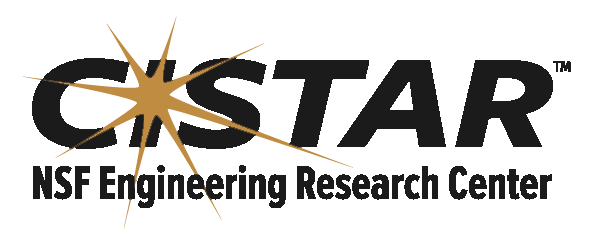Manipulating Support Materials Can Enhance Performance of Shale Gas Catalysts
Outcome/Accomplishment
Shale gas can be more efficiently refined by manipulating materials that support catalysts in the process, according to research conducted by the Center for Innovative and Strategic Transformation of Alkane Resources (CISTAR), an NSF-funded Engineering Research Center (ERC) based at Purdue University.
Impact/Benefits
CISTAR researchers have shown that at high temperature, support oxides migrate to partially cover the catalytically active phase. The interactions of the support oxides with the catalysts are shown to enhance their catalytic performance.
Explanation/Background
The metal-support modifications significantly improve selectivity to desired products. The metal-support modifications stabilize smaller nanoparticles under the extreme reaction conditions necessary for the shale gas process under development at the Center.
New processes will help meet the need for increasingly flexible refining of shale gas as the industry experiences a shift from transportation fuels, which are expected to see reduced demand, in favor of petrochemicals for industry.
Location
West Lafayette, Indianawebsite
Start Year
Energy and Sustainability
Energy, Sustainability, and Infrastructure
Lead Institution
Core Partners
Fact Sheet
Outcome/Accomplishment
Shale gas can be more efficiently refined by manipulating materials that support catalysts in the process, according to research conducted by the Center for Innovative and Strategic Transformation of Alkane Resources (CISTAR), an NSF-funded Engineering Research Center (ERC) based at Purdue University.
Location
West Lafayette, Indianawebsite
Start Year
Energy and Sustainability
Energy, Sustainability, and Infrastructure
Lead Institution
Core Partners
Fact Sheet
Impact/benefits
CISTAR researchers have shown that at high temperature, support oxides migrate to partially cover the catalytically active phase. The interactions of the support oxides with the catalysts are shown to enhance their catalytic performance.
Explanation/Background
The metal-support modifications significantly improve selectivity to desired products. The metal-support modifications stabilize smaller nanoparticles under the extreme reaction conditions necessary for the shale gas process under development at the Center.
New processes will help meet the need for increasingly flexible refining of shale gas as the industry experiences a shift from transportation fuels, which are expected to see reduced demand, in favor of petrochemicals for industry.

